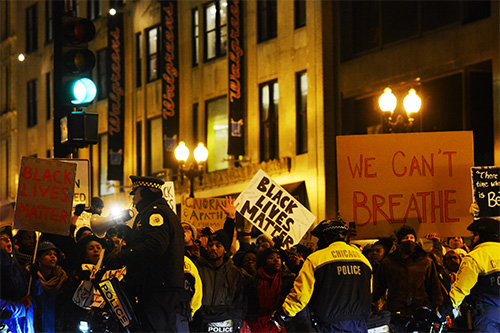
University of California law school professor Joanna Schwartz noted that, just like with drivers and their auto insurance policies, any misconduct a police force is charged with brings more claims. And more claims would increase the premiums of the police’s liability insurance. Once the premiums reach the point that they can no longer offset the policy’s payout, the insurer may withdraw from the market, leaving the city and its police on the hook for any remaining claims.
“Insurance companies are driven by dollars and not politics,” the professor told Quartz in an interview. “And insurers can increase departments’ and cities’ premiums or even pull out if [it represents] a financially risky behavior for the insurance company.”
Schwartz is the author of a research paper titled “How Government Pay: Lawsuits, Budgets, and Police Reform.” The research looks into how financial sanctions can be used to improve the conduct of government officials.
In her paper, Schwartz cited the case of one insurance risk manager in Idaho, who had seen several liability issues in a local county jail. To resolve the problem, the risk manager created a list of changes the jail had to make in order to bring down risk and therefore lower insurance premiums, such as ensuring there was medical personnel available onsite. Those changes were then extended to all of the 44 counties that are part of the Idaho state pool, and the counties were given a couple of years to meet those requirements before their premiums increased. The majority of the counties involved implemented the changes.
Another researcher, University of Chicago professor of law John Rappaport, said that once a small or medium-sized city purchases insurance, it becomes in the interest of the insurer to see police brutality reduced. Rappaport added that insurers did not consistently focus on the costs of police brutality until recently, since they were dealing with other costs such as medical malpractice or educational issues.
But awareness of police brutality has grown so much in recent times, thanks to the increase in conversations and protests, and some police have made changes – such as undergoing training or wearing body cameras – to comply with liability insurance, Rappaport said.
Rappaport also suggested that if towns create insurance pools with other towns in their state to self-insure themselves, it could create a similar level of financial accountability. To ensure that costs remain low in the insurance pool, one police department could pressure the other toward better policing.
“It doesn’t always work quite that perfectly, but when it’s working well it can be really powerful,” Rappaport explained to Quartz. “Policing has its own culture, and sometimes the message is going to come across better if it’s coming from other police chiefs than if it’s coming from a mayor, or an insurance trust.”
"want" - Google News
June 08, 2020 at 01:45PM
https://ift.tt/3cJxU5A
Want to stop the violence? Get cities to buy insurance - Insurance Business
"want" - Google News
https://ift.tt/31yeVa2
https://ift.tt/2YsHiXz
Bagikan Berita Ini
















0 Response to "Want to stop the violence? Get cities to buy insurance - Insurance Business"
Post a Comment